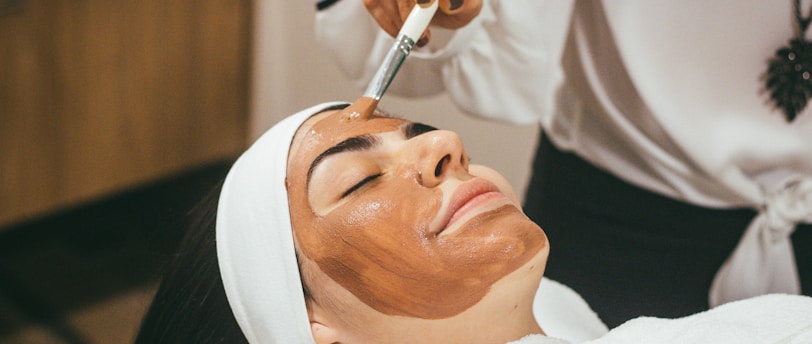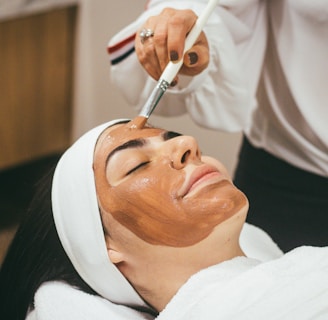5 Dos and Don'ts for Oily Skin: A Comprehensive Guide
Dos and Don'ts on managing oily skin like a pro. Elevate your skincare routine and embrace a healthy complexion.


Introduction
Oily skin can be a challenge to manage, but with the right approach, you can keep it under control and achieve a healthy, radiant complexion. In this article, we will discuss five dos and don'ts for oily skin, along with substitute actions that can be taken to maintain optimal skin health.
Dos for Oily Skin
1. Do Cleanse Regularly
Regular cleansing is crucial for oily skin. Use a gentle cleanser specially formulated for oily skin types. Look for ingredients like salicylic acid or tea tree oil, as they help to control excess oil production and prevent breakouts. Cleanse your face twice a day, in the morning and before bed, to remove dirt, impurities, and excess oil.
2. Do Exfoliate Weekly
Exfoliation is essential for oily skin as it helps to remove dead skin cells and unclog pores. Opt for a gentle exfoliator with ingredients like alpha hydroxy acids (AHAs) or beta hydroxy acids (BHAs). These ingredients help to dissolve excess oil and prevent the formation of blackheads and whiteheads. Exfoliate your skin once a week to maintain a smooth and clear complexion.
3. Do Use Oil-Free Moisturizers
Contrary to popular belief, oily skin needs moisturization too. However, it is important to choose oil-free, non-comedogenic moisturizers that won't clog your pores. Look for lightweight, gel-based formulas that provide hydration without adding extra shine. Moisturizing regularly will help balance your skin's natural oil production and keep it nourished.
4. Do Wear Sunscreen
Sun protection is crucial for all skin types, including oily skin. Look for oil-free sunscreens with a broad-spectrum SPF of 30 or higher. These sunscreens provide protection against harmful UV rays without clogging your pores or causing breakouts. Apply sunscreen generously on your face and exposed skin every day, even on cloudy days, to prevent sun damage and premature aging.
5. Do Manage Stress Levels
Stress can trigger an increase in oil production, leading to breakouts and other skin issues. Practice stress management techniques like meditation, yoga, or deep breathing exercises to keep stress levels in check. Additionally, ensure you get enough sleep and maintain a healthy lifestyle with a balanced diet and regular exercise. A holistic approach to managing stress will reflect positively on your skin's health.
Don'ts for Oily Skin
1. Don't Overwash Your Face
While cleansing is important, overwashing your face can strip away the natural oils and lead to excessive oil production. Avoid using harsh soaps or cleansers that can irritate your skin and trigger more oil production. Stick to gentle cleansers and limit washing your face to twice a day to maintain a healthy balance.
2. Don't Skip Moisturizer
Some people with oily skin tend to skip moisturizer, thinking it will make their skin more oily. However, skipping moisturizer can make your skin produce more oil to compensate for the lack of hydration. Instead, opt for an oil-free moisturizer that suits your skin type and use it regularly to keep your skin well-hydrated and balanced.
3. Don't Use Heavy Makeup
Heavy, oil-based makeup can clog your pores and worsen oily skin conditions. Instead, choose lightweight, oil-free, and non-comedogenic makeup products. Look for water-based foundations, mineral powders, and oil-free blushes and bronzers. Also, remember to remove your makeup thoroughly before going to bed to prevent pore blockage and breakouts.
4. Don't Touch Your Face Frequently
Touching your face frequently can transfer dirt, bacteria, and oil from your hands to your skin, leading to breakouts. Avoid touching your face unnecessarily and refrain from popping pimples or picking at your skin. If you need to touch your face, make sure your hands are clean or use a clean tissue or cotton pad.
5. Don't Neglect Regular Skin Examinations
Regularly examining your skin can help you identify any changes or potential issues. Keep an eye out for any new moles, spots, or unusual changes in your skin's texture or appearance. If you notice anything concerning, consult a dermatologist for a professional evaluation. Early detection can be crucial in preventing and treating any skin conditions effectively.
Conclusion
By following these dos and don'ts for oily skin, you can effectively manage your skin's oil production, prevent breakouts, and maintain a healthy complexion. Remember to cleanse and exfoliate regularly, use oil-free moisturizers and sunscreen, manage stress levels, and avoid common pitfalls like over washing or skipping moisturizer. With proper care and attention, you can achieve a balanced and radiant complexion, even with oily skin.
Want to see what products we recommend to combat oily skin? click here
@BlemishBeGoneLTD
Like what we do? Show your support by following us on Instagram, this will help us reach more people struggling with acne :) Let's change the world one person at a time.
